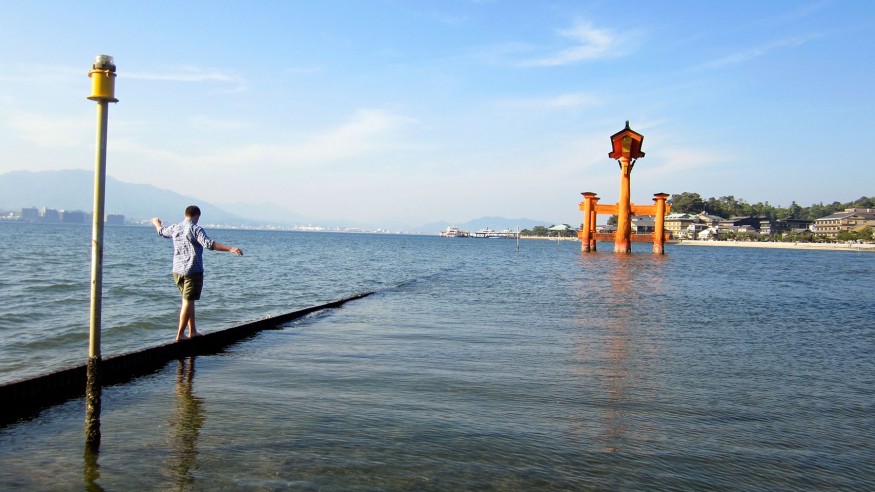It's Inauguration Week! Let the Fun Begin!
View details for Inauguration Day and access the full schedule of events.
View details for Inauguration Day and access the full schedule of events.

August 11, 2015 | By Cole Hatcher

Learn how OWU’s many academic, research, and travel-learning programs prepare students for leadership and global citizenship and help them … Make the Connection.
Ohio Wesleyan students visited Japan to examine the country’s “major historical and environmental events through the lens of literature and film,” says Kevin Rossi ’17. The group saw many opportunities for the United States to borrow environmental practices already incorporated into Japanese life. (Photo courtesy of Kevin Rossi ’17)
Kevin Rossi ’17
Name: Kevin Rossi ’17
Majors: Neuroscience and Genetics
Hometown: Stow, Ohio
Experience: Travel-Learning Course, “Elegance and Brutality: Topics in Modern Japanese Literature”
In May, Rossi and classmates traveled to Japan with Anne Sokolsky, Ph.D., associate professor of comparative literature, to examine how this modern economically developed country balances its love for nature with its needs to exploit it to compete in the global industrial world.
Lessons Learned: “The purpose of the ‘Elegance and Brutality’ Travel-Learning Course was to study the environmental movement and the major historical and environmental events through the lens of literature and film. We studied events such as the Minamata disease outbreak, the dropping of the atomic bomb in Hiroshima, and the Fukushima nuclear incident. …
“[W]e met with scholars and survivors of these incidents to learn and discuss the after-effects of some of these events as well as about Japan’s efforts to be more energy efficient, cut energy usage altogether, recycle more, and mend its relationship with nature and the environment.
“While in Japan, we learned firsthand how much they recycle, because you cannot find trashcans in public areas very easily, and we had to hold all of our trash until we found them. However, they were grouped into different sections to recycle different materials, and cans for non-recyclables were labeled ‘others’ and were even more rare to find. We also learned about some of the technological differences in energy efficiency firsthand through things like laundry troubles, which was really humorous, because the reason their dryers are so efficient is because they also take four hours to complete the cycle. …
“We learned some of the minor ways that Japan was able to change the citizens’ behavior in order to cut down energy usage … (like allowing) workers to not wear a tie during the summer or wear a sweater over their work clothes during the winter. …
“Japan has been very clever in changing the behavior of mass amounts of citizens, and even if each citizen’s savings are minuscule, it all adds up to save a very large amount of energy. … [L]earning about it firsthand taught us just how far behind our country is but also how far we can go with our environmental movement.”